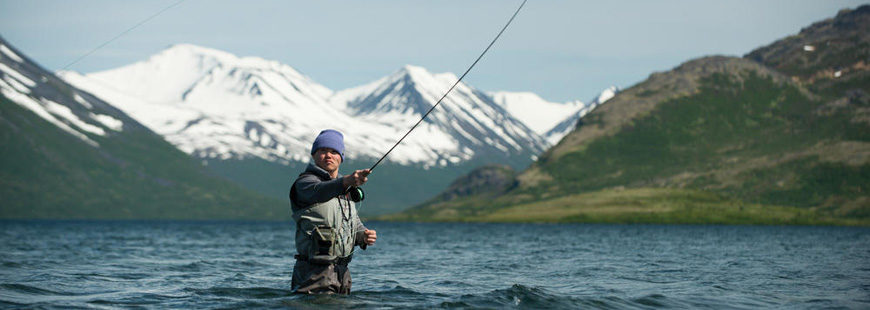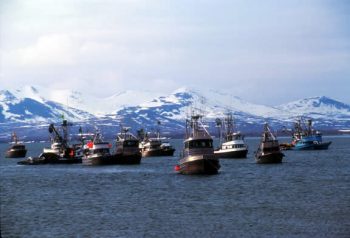Latest News
On January 31, 2023, the Environment Protection Agency issued a Clean Water Act section 404(c) Final Determination to prohibit and restrict the use of certain waters in the Bristol Bay watershed as disposal sites for mining waste. This decision provides the strongest level of habitat protection currently available for the largest sockeye salmon run in the world and effectively keeps mining waste from destroying Bristol Bay’s invaluable, pristine watershed.
On May 1, 2024, Alaska Representative Mary Peltola introduced legislation in Congress to enshrine in federal law the 2023 EPA decision to veto Pebble Mine. For more, read Rep. Peltola’s statement and the text of the bill, called the Bristol Bay Protection Act. You can also check out the Network’s blog post about the bill.
Alaska Native Tribes and residents, local commercial and recreational fishermen, conservation groups, outdoor recreators, chefs, local businesses, and countless others depend every day on a healthy and thriving Bristol Bay. With the EPA’s decision, the Biden administration has taken a significant step toward protecting the ecological integrity of this region for generations to come. Read the Network’s statement on the EPA decision, view a letter to the EPA from businesses with a stake in the health of Bristol Bay, and see an ad from Trout Unlimited thanking the EPA.
What’s At Stake
Bristol Bay and its connected waters support sustainable fishing businesses, individual livelihoods, unparalleled sport fishing opportunities, and millennia-old Native Alaskan traditions that are part of the cultural and social fabric of this region. After years of widespread industry, environmental, Tribal, recreational, and local opposition to the Pebble Mine project, the Biden administration has implemented the strongest protections available under current federal law to conserve the region’s robust natural resources — upon which so many depend.
EPA’s final determination does not automatically stop the proposed Pebble Mine, which threatened Bristol Bay’s invaluable and pristine natural habitat, home to the world’s largest sockeye salmon fishery. Other mine sites have been proposed in the area as well. To learn more, see the resources below, including video of the Network’s Waterside Chat from May of 2022, which explained EPA’s proposed determination that lead to this final determination.
Background
A Canadian-owned company has been moving to mine for minerals (including gold) close to Alaska’s Bristol Bay, which includes the richest sockeye salmon fishery in the world. Runoff from the proposed Pebble Mine — including hazardous chemicals such as cyanide — would threaten the near-pristine habitat of salmon and other wildlife around Bristol Bay and the rivers and lakes that flow into it.
Communities and fishermen in and around Bristol Bay have depended for generations on abundant salmon runs for food, income and a way of life. Fishermen have maintained this sustainable relationship through a respect for the salmon’s natural habitat paired with science-based fisheries management. Pebble Mine would upset this balance for the benefit of the mine’s owners and investors, and at the expense of the people who live there.
As the late Senator Ted Stevens of Alaska said of Pebble Mine, “This is the wrong mine in the wrong place.” Learn more about why Pebble Mine is bad for Alaska:
- The Call to Protect Bristol Bay
- The U.S. Army Corps of Engineers Denies Pebble Mine Permit Application. What the decision does and doesn’t mean.
- Pebble Mine Threatens the Largest Wild Salmon Run in the World
- It’s Time for the Environmental Protection Agency to Say No to Pebble Mine
- You Are What You Eat, You Are From Where You Eat: We Are Bristol Bay
- Tears of Joy: A Bristol Bay Free from Pebble Mine
- Many Hands Benefit from Bristol Bay
- Why Mining in Bristol Bay is Still A Bad Idea



